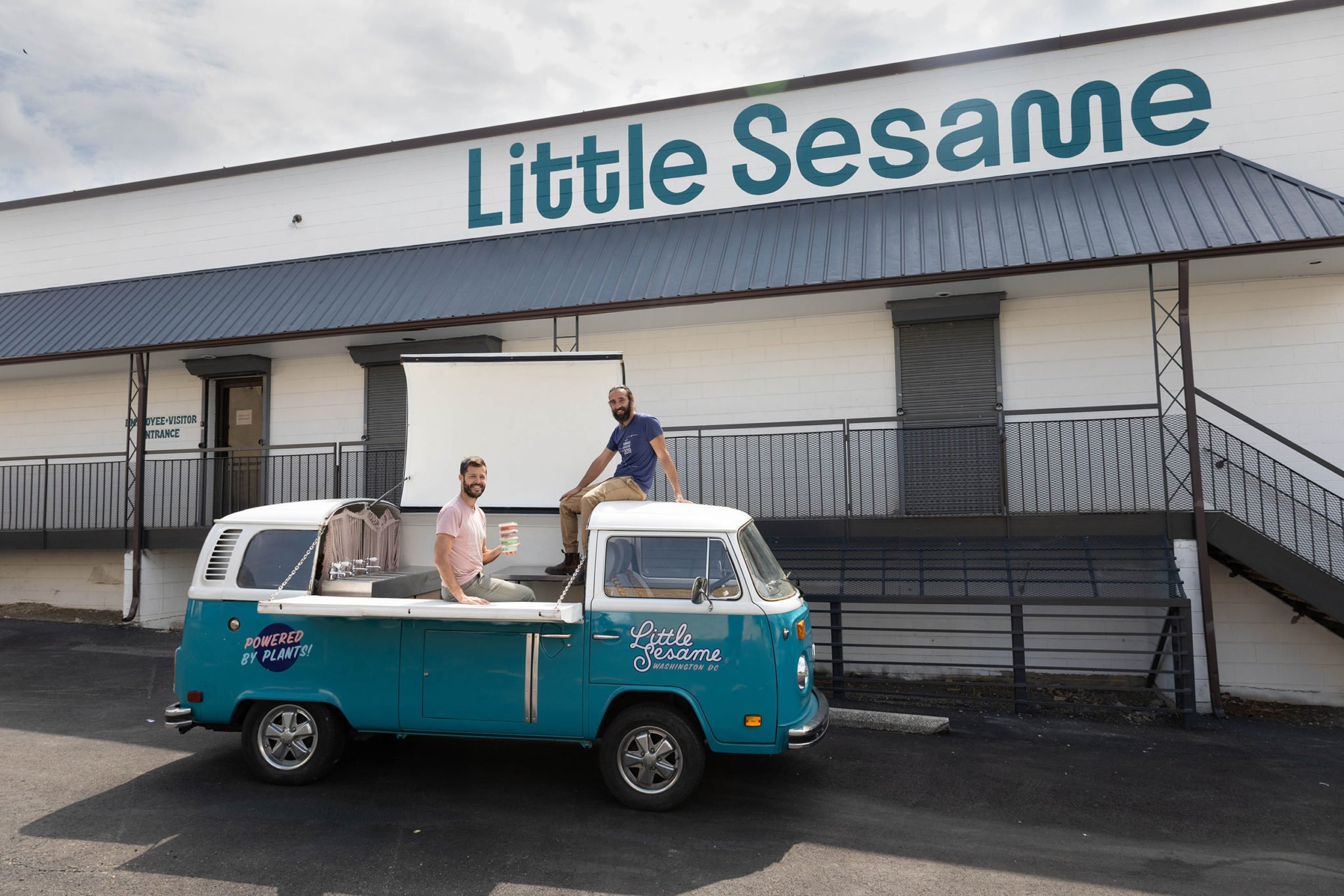Which part of the world makes more hummus: the Middle East or the Mid-Atlantic? You’ll probably be surprised to learn that it’s our region, at least when it comes to commercial-grade chickpea dip. America’s Hummus Highway, as some people are calling it, starts at Sabra’s mega-factory south of Richmond, passes through Cava’s two plants in the Shenandoah Valley and Laurel, and ends at Little Sesame’s brand-new factory in Prince George’s County. That all adds up to the largest hummus hub in the country.
So how did our area stumble onto this garbanzo bonanza? Credit tub behemoth Sabra Dipping Company, which is co-owned by PepsiCo and built the globe’s largest hummus factory in Virginia’s Chesterfield County. When looking for a location, Sabra needed a populous, strategically located spot. Virginia is close to hummus-hungry markets in the North and Southeast and also has good rail and port access. The facility opened in 2010, and its products have been scooped up around the country ever since.
Joining Sabra are a pair of home-bred hummus hawkers. Washington-based Cava Group operates close to 400 locations nationwide, and it’s investing more than $30 million in a new plant near Verona, Virginia, to supply them. That means its original Maryland factory can focus on the business’s fast-growing supermarket arm, ramping up tub production and expanding the range of products to include things like everything-spice labneh. And DC’s Little Sesame, a relatively new player with an expanding grocery-store business, opened a factory in District Heights last year. Founder Nick Wiseman says the presence of other hummus makers in the area was a big factor in choosing the location. “I had an adviser who’d always say, ‘Look at what toilet Home Depot uses—that’s the one you want,’ ” he explains. “Sabra did their due diligence on where to be positioned and why this area is ideal.”
Sabra CEO Joey Bergstein says the decision has paid off: “The location has proven to be as strategic as we hoped. Obviously, Virginia is for hummus lovers.” Actually, the whole country seems besotted with it. The American market is projected to grow from $602 million in 2019 to more than $1.5 billion by 2027, according to Globe Newswire. And in the short term, “we anticipate a hot hummus summer as people get back to entertaining,” Bergstein says. Start spreading the news.
This article appears in the June 2023 issue of Washingtonian.















